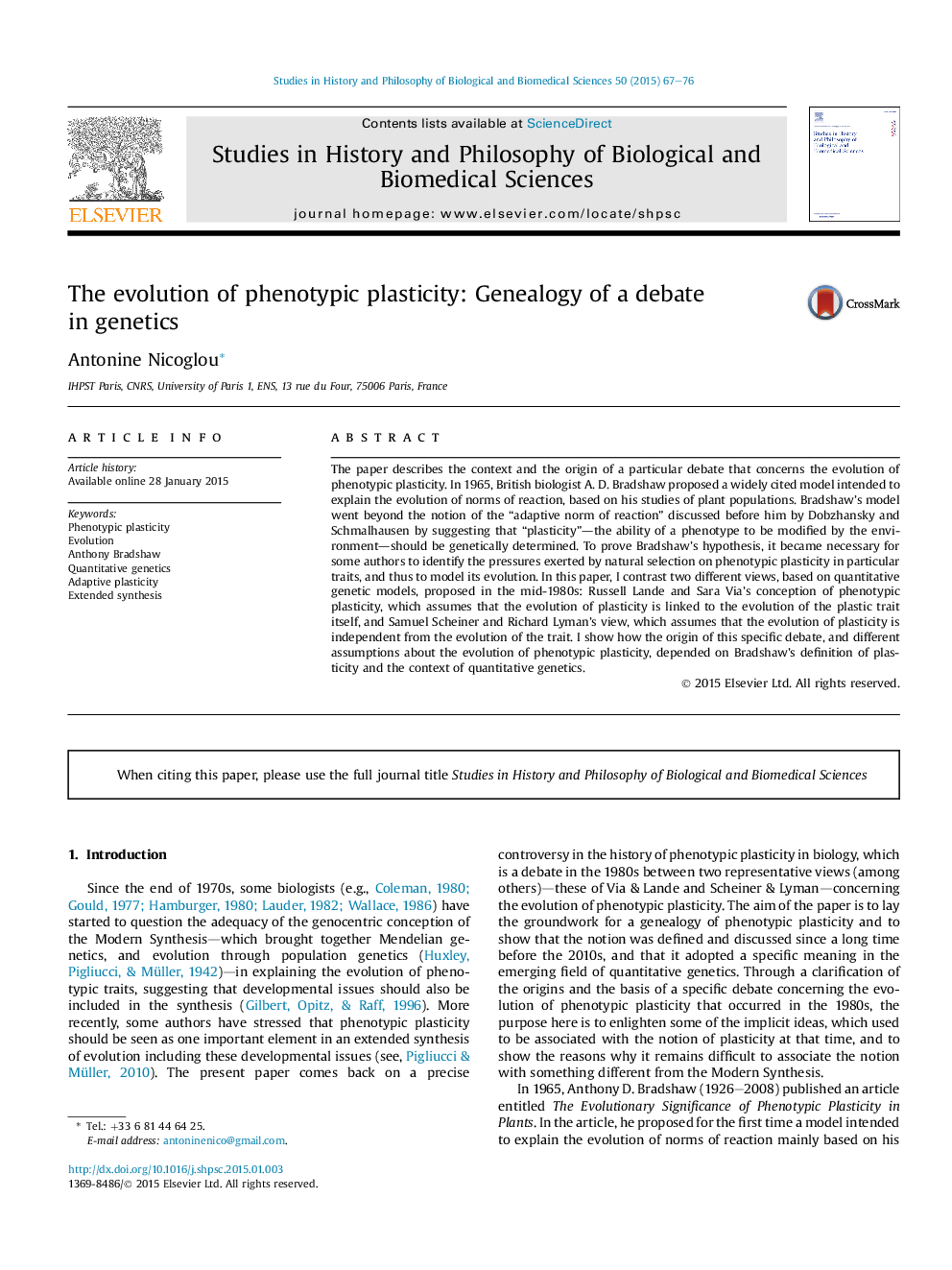| Article ID | Journal | Published Year | Pages | File Type |
|---|---|---|---|---|
| 1161168 | Studies in History and Philosophy of Science Part C: Studies in History and Philosophy of Biological and Biomedical Sciences | 2015 | 10 Pages |
•Plasticity is seen as an important concept for an Extended Synthesis of evolution.•Bradshaw's work on plasticity influenced studies in quantitative genetics.•I analyze a debate, which concerns the evolution of phenotypic plasticity, where both sides worked in quantitative genetics.•They had different views concerning the evolution of plasticity.•In the 1990s, the compromise went in favor of Bradshaw's definition of plasticity.
The paper describes the context and the origin of a particular debate that concerns the evolution of phenotypic plasticity. In 1965, British biologist A. D. Bradshaw proposed a widely cited model intended to explain the evolution of norms of reaction, based on his studies of plant populations. Bradshaw's model went beyond the notion of the “adaptive norm of reaction” discussed before him by Dobzhansky and Schmalhausen by suggesting that “plasticity”—the ability of a phenotype to be modified by the environment—should be genetically determined. To prove Bradshaw's hypothesis, it became necessary for some authors to identify the pressures exerted by natural selection on phenotypic plasticity in particular traits, and thus to model its evolution. In this paper, I contrast two different views, based on quantitative genetic models, proposed in the mid-1980s: Russell Lande and Sara Via's conception of phenotypic plasticity, which assumes that the evolution of plasticity is linked to the evolution of the plastic trait itself, and Samuel Scheiner and Richard Lyman's view, which assumes that the evolution of plasticity is independent from the evolution of the trait. I show how the origin of this specific debate, and different assumptions about the evolution of phenotypic plasticity, depended on Bradshaw's definition of plasticity and the context of quantitative genetics.
